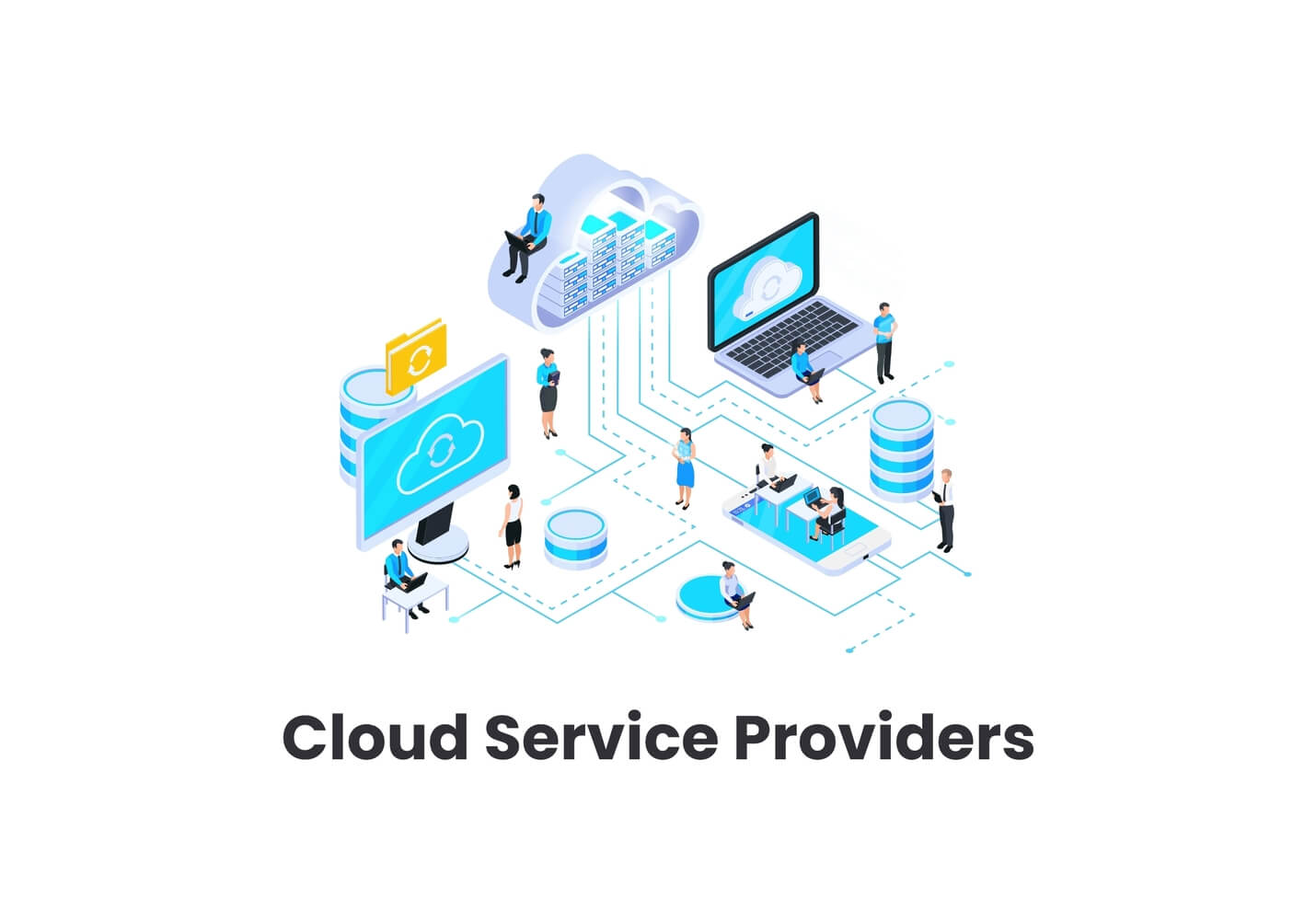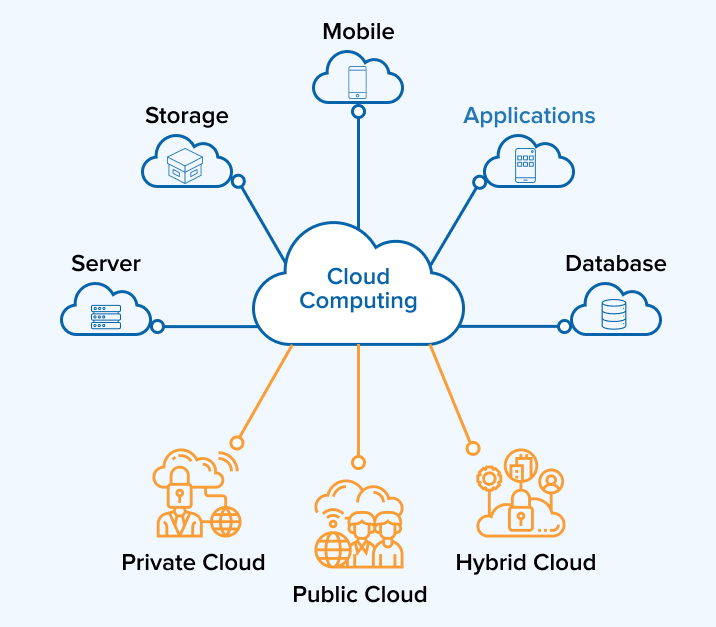Scalable Solutions: Utilizing the Power of Cloud Services
In the hectic world of digital transformation, the usage of scalable options with cloud services has ended up being a critical technique for companies seeking to adjust and grow. The capability to effortlessly adjust resources, handle varying workloads, and enhance performance without being connected to typical facilities constraints offers a peek right into the future of active and efficient operations. Exactly how precisely do these cloud solutions enable such flexibility and what effect could they have on the ever-evolving landscape of company operations?
Advantages of Cloud Scalability
When considering the advantages of cloud scalability, companies can successfully expand their resources to satisfy changing demands in a cost-effective way. Cloud scalability refers to the capability of cloud solutions to accommodate differing work by rapidly and easily provisioning or de-provisioning sources as needed.
By leveraging scalable cloud services, organizations can quickly release new solutions, applications, or features, allowing them to stay in advance of the competition in today's hectic company setting. Overall, the benefits of cloud scalability encourage organizations to operate even more dynamically and competitively in the electronic landscape.
Affordable Solutions
Cost-effectiveness is a crucial factor to consider for companies seeking to maximize their sources and operations in an affordable market landscape. Cloud services offer economical services that can aid companies lower their IT expenses substantially. Among the main benefits of cloud computing is its pay-as-you-go pricing design, enabling businesses to pay just for the sources and solutions they use. This removes the requirement for big in advance financial investments in IT infrastructure, making it an attractive option for business wanting to regulate costs.
In addition, cloud solutions enable companies to scale their sources according to their demands, avoiding the costs related to maintaining excess capability. By leveraging the scalability of cloud options, companies can readjust their computer power, storage space, and various other sources in real-time, making certain optimum efficiency while maintaining prices in check.
Additionally, cloud suppliers typically offer competitive rates plans and discounts for long-term commitments, assisting organizations achieve also higher price financial savings. In general, by relocating to the cloud, business can gain from cost-effective remedies that boost performance and competition in today's dynamic organization environment.
Improved Data Safety Measures
In today's quickly evolving electronic landscape, the implementation of enhanced data security procedures is vital for services leveraging cloud solutions to guard sensitive details and minimize potential cyber dangers. Boosted information file encryption protocols, multi-factor authentication, and normal protection audits are vital components in strengthening information protection within cloud settings.
In addition, the adoption of sophisticated hazard discovery systems, such as invasion discovery and prevention systems, can help detect and react to safety events in real-time, enhancing overall information protection position. Data loss prevention devices and safe backup services better make certain company continuity and information stability in the face of unanticipated occasions like ransomware assaults or unintended deletions.
Conformity with sector policies and index criteria, such as GDPR or HIPAA, is also crucial when saving and processing sensitive information in the cloud. linkdaddy cloud services press release. Implementing robust accessibility control devices and performing employee training on cybersecurity best techniques are added procedures that can boost data safety efforts in cloud-based operations. By prioritizing these improved protection steps, companies can impart trust among consumers and stakeholders while protecting their valuable electronic assets

Enhanced Efficiency and Speed
The pursuit for optimum efficiency and rate in cloud solutions continues to be a driving force behind technological innovations in the electronic realm. Improved performance and rate are crucial factors that determine the effectiveness and performance of cloud services for services and people alike. Cloud provider continuously strive to boost the performance of their platforms by enhancing network framework, maximizing information processing capacities, and carrying out advanced caching devices.
Effective tons harmonizing methods are utilized to disperse work uniformly throughout servers, guaranteeing speedy feedback times and very little latency. Additionally, advancements in equipment technology, such as solid-state drives (SSDs) and high-speed networking tools, add to much faster information accessibility and transfer rates. Via the use of web content distribution networks (CDNs), cloud services can deliver internet content closer to end-users, decreasing latency and boosting general performance.

Scalability for Company Growth
Ensuring the capacity to increase procedures perfectly and successfully, scalability is an essential aspect for businesses looking for sustained growth within the cloud services landscape. Scalability allows companies to adapt to changing needs by easily changing resources such as calculating storage, transmission capacity, and power. This adaptability is specifically useful for companies experiencing quick development or changing needs.
With scalable cloud services, companies can stay clear of the taxing and pricey procedure of procuring and deploying added equipment. Instead, they can swiftly scale up or down based upon demands, paying only for the sources utilized. This pay-as-you-go design not only boosts cost-efficiency yet likewise allows companies to respond quickly to market changes and possibilities.
In addition, scalability promotes innovation and agility within companies. By swiftly scaling resources to sustain brand-new tasks or ventures, firms can check out new opportunities for growth without being hindered by facilities constraints. Ultimately, scalability empowers companies to broaden their operations smoothly and efficiently, laying a solid foundation for lasting success in the vibrant organization environment.
Conclusion

Cloud scalability refers to the ability of cloud solutions to fit varying work by quickly and quickly provisioning or de-provisioning sources as needed. One of the primary benefits of cloud computer is its pay-as-you-go prices design, allowing companies to pay only for the services and sources they make use of. Enhanced performance and speed are vital factors that figure out the performance and efficiency of cloud services for people and businesses alike - linkdaddy cloud services.Making certain the capability to increase procedures flawlessly and efficiently, scalability is a crucial aspect for services seeking continual development within the cloud services landscape.In final thought, cloud scalability provides countless advantages for organizations, including economical services, boosted information security measures, enhanced performance and rate, and the capacity to scale for service growth